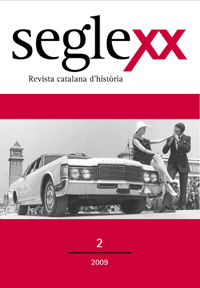Turisme, modernització i idiosincràsia nacional a l’Espanya del segle XX
Keywords:
Spanish culture, political history, international relations, Franco dictatorship, tourismAbstract
This article explores the role of tourism in Spanish cultural and political history in the late nineteenth and twentieth centuries. Although Spain developed moderndomestic leisure practices in the nineteenth century, tourism promoters were dismayedby the small numbers of foreign visitors they received. By the early twentieth century, the project of developing a receptive tourism industry became a major component of a broader program of national «regeneration». After the Second World War, when the Franco dictatorship faced international ostracism, foreign tourism became an important form of international relations. In the subsequent three decades, tourism became arguably the Franco regime’s most important political and economic good until problems of overbuilding and corruption ended the euphoria of Spain’s so-called «tourist miracle».
Downloads
Downloads
How to Cite
Issue
Section
License
The author who publishes in this journal agrees to the following terms:
a. The author exclusively assigns all intellectual property rights to the publisher worldwide and for the entire duration of the applicable intellectual property rights.
b. The publisher will distribute the texts under the Attribution-NonCommercial-NoDerivs 4.0 International, which allows the work to be shared with third parties, as long as they acknowledge the authorship, the initial publication in this magazine and the conditions of the license.












